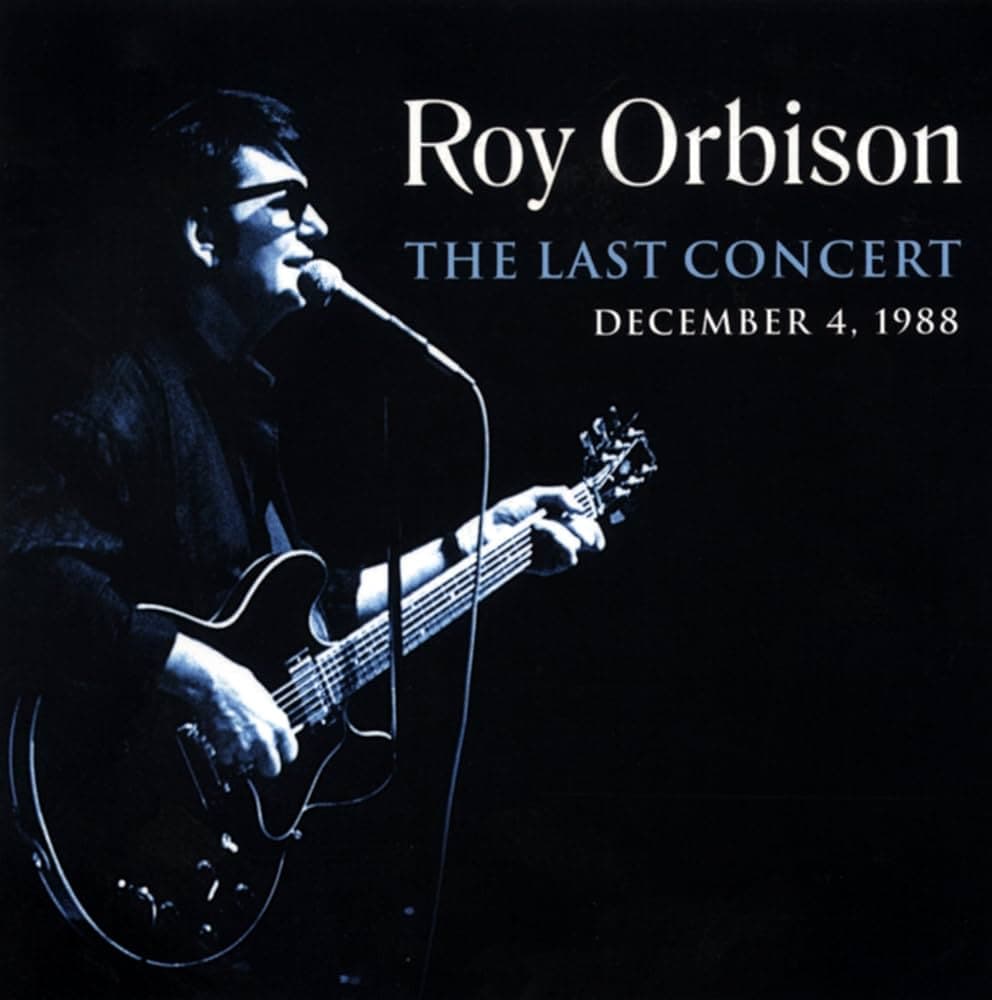
An emotional farewell from a legendary voice, unknowingly offering a final, definitive performance.
There are moments in music history so profoundly bittersweet they feel almost mythical. The recording of The Last Concert by Roy Orbison isn’t just a live album; it’s a a time capsule of an artist at the peak of a triumphant comeback, captured just two days before his sudden passing on December 6, 1988. It’s a document of a voice that was pure, soaring, and utterly unique, silencing any doubts that the man who gave us “Oh, Pretty Woman” and “Crying” had lost his magic. The album, which was released posthumously, wasn’t a commercial powerhouse in the way his studio albums were, as it was a historical document more than a pop chart contender. However, its significance lies not in its chart position, but in its soul-stirring, historical weight.
For anyone who came of age with his music, this record is a poignant and powerful testament to a career defined by an operatic voice and an even more operatic life. It was a life marked by unimaginable loss—the death of his first wife in a motorcycle accident and, later, two of his sons in a house fire. Yet, through it all, Orbison channeled his profound sorrow into songs that spoke to the deepest parts of the human experience. He didn’t just sing about heartbreak; he inhabited it. He made loneliness sound majestic, and despair feel like a tragic, beautiful ballad.
The story behind this particular concert, held on December 4, 1988, at the Front Row Theater in Highland Heights, Ohio, is what truly elevates it from a mere recording to a piece of living history. Orbison had recently experienced a remarkable career resurgence. His induction into the Rock and Roll Hall of Fame in 1987, his participation in the supergroup The Traveling Wilburys, and the prominent use of his song “In Dreams” in the cult film Blue Velvet had brought him back into the public eye in a major way. He was energized, optimistic, and looking forward to a world tour and his upcoming album, “Mystery Girl”. The man on that stage was not a fading star but a vibrant artist, still in full command of his four-octave voice, effortlessly hitting the high, trembling notes that were his trademark.
Listening to this record, you can almost feel the air in the room, the hushed reverence of the audience as he delivers classic after classic. The crackling energy of “Only the Lonely,” the aching vulnerability of “Crying,” and the commanding swagger of “Oh, Pretty Woman” are all there, a final tour of his timeless catalogue. There’s a certain tragic irony to it, a sense of finality that the audience couldn’t have known at the time. They were witnessing a legend at his absolute best, unknowingly saying goodbye. The sound mix, while not perfect, is raw and authentic, a direct line back to that cold December night. It’s a concert that perfectly encapsulates the man himself—a gentle, unassuming genius with the voice of a cosmic angel, who found a way to turn his pain into something universal and enduring. This album isn’t just a collection of songs; it’s a eulogy, a celebration, and a final, breathtaking bow from a true master.